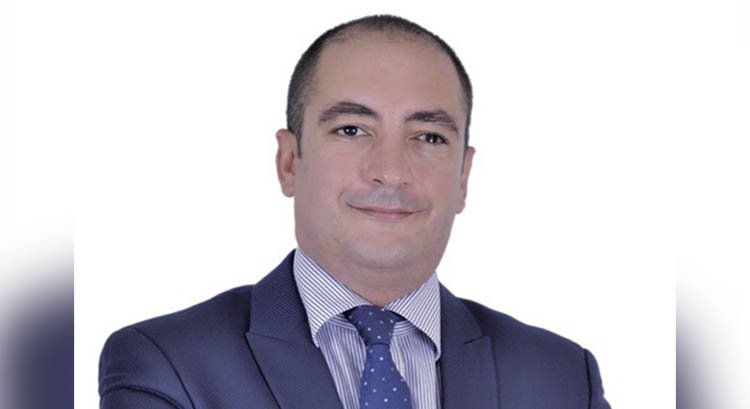Global insurer Allianz has just released the results of its thirteenth Global Business Risk Barometer.
A survey that collected the opinions of 3,069 experts from 92 countries, including Morocco, including general managers, risk managers, brokers and insurers. And the least we can say is that attention must be paid to cyber risks, which will increase even further this year. Details from Hicham Alaoui Bensaid, CEO of Allianz Trade, on the main conclusions to emerge, as well as the measures to be taken.
Challenge: What are the key lessons learned from the Allianz Risk Barometer regarding the specific challenges facing businesses in Africa?
Hicham Alaoui Bensaid: The Allianz Risk Barometer in Africa and the Middle East indicates the rise in cyber risks, which is already second in the 2023 ranking and tops the list in the 2024 ranking, in line with the global trend.
Compared to the world rankings, it should be noted that the African companies that responded to our barometer highlight a number of risks that are quite specific to the continent (quality of infrastructure, political risks, energy risks, etc.). In terms of other risks, we see themes that are more common in other regions of the world (climate change, regulatory developments, natural disasters, etc.).
Also read | Sanlam Alliance. Establishment of a major joint venture worth Dh18.56 billion
Challenge: Can you explain to us how cybersecurity risks are a major threat to businesses in Africa and how it is challenging their business models?
HAB: In fact, the risks associated with cybersecurity include a relatively heterogeneous range of sub-risks, as they concern, for example, ransomware (taking a computer account hostage, which can be released upon payment of a ransom), hacking, for example, a bank account, allowing financial transactions, or even Trojan horses, that allow access to confidential information.
As a result, affected companies, whether located in Africa or elsewhere, face numerous negative consequences, ranging from the sluggishness or even closure of the information system to the materialization, where appropriate, of excessive financial payments, including the recovery of confidential data (commercial database, HR database, etc.), which constitutes a large part of a company’s goodwill.
Challenge: How can collaboration between companies, governments and international organizations in this sense help mitigate the operational risks faced by businesses in Africa?
HAB: The joint efforts of all appear to form the basis for a sustainable and efficient solution to this important phenomenon. Thus, state initiatives (national or international), in particular through a strengthened legislative arsenal, but also significant budgets allocated to preventing attacks and minimizing their consequences if they occur, can help deter cyber perpetrators. This obviously entails costs, but these may remain marginal compared to the consequences involved.
Also read | The German Allianz is restoring almost a thousand jobs in Tangier
Challenge: What are the concrete actions business leaders in Africa can take now to protect their businesses from cyber, operational and environmental risks and ensure their long-term viability?
HAB: In fact, by protecting themselves as much as possible against potential sources of cyber risk, by investing in IT security mechanisms upstream and by taking out insurance contracts against cyber risks, downstream, companies can thus initiate a response.
As regards environmental risks, the establishment of ad hoc committees, equipped with appropriate resources and responsible for both regulatory oversight and identification of international best practices, may be an appropriate solution.
As for operational risks, this is undoubtedly the topic that companies seem to have been most aware of for years, through mechanisms of internal procedures and cross-checks, in theory. Are these procedures sufficiently updated and documented in practice? Are the controls operational and documented? Do small and medium-sized enterprises and SMEs have a sufficiently critical size that allows the use of procedures that can limit operational risks as much as possible? These questions can be rightly asked.
Challenge: What about Morocco? And how does the increasing interconnectedness of technological, social and geopolitical risks pose a major challenge for companies in Morocco and how does it affect their ability to quickly adapt to change?
HAB: Specifically, we are talking about the growing need for material resources (effective IT protection systems, appropriate insurance policies, etc.) and human resources (recruitment for new positions, continued training, etc.), but also for change management and resistance to this last. For a certain number of Moroccan companies, the bet on both aspects (required resources and change management) is anything but won.
Also read | “13,000 cases of business failures in Morocco”: details from Allianz Trade
Challenge: How can Moroccan companies take advantage of accelerated technological change to strengthen their competitiveness while meeting the challenges related to social and geopolitical risks?
HAB: I am convinced that many Moroccan companies can differentiate themselves from the competition, thanks to better management of technological changes. As mindsets evolve and priorities realign, many companies can take advantage of technological advances to better anticipate and manage the impacts of different risks (social, geopolitical, etc.) while being even more responsive to needs of their markets.
Challenge: Ultimately, what are the concrete actions that business leaders in Morocco can implement now to successfully navigate this context of accelerated change and overcome the interconnected challenges before them?
HAB: Invest, or better said, redistribute the classic investments from the past to investments that are more in line with the times.
Be ready for change and accept that what made you successful yesterday may be a hindrance tomorrow.
His journey
Hicham Bensaid Alaoui is the CEO of Allianz Trade Morocco (by Euler Hermes Acmar), the world leader in credit insurance. The expert has an accounting degree from the French State and a master’s degree from the Audencia Nantes School of Management. Before taking on his current position, Hicham Bensaid Alaoui held the position of Director of Information Risk, Information Claims and Remediation.
His news
Allianz Maroc recently organized a press conference on the occasion of the visit of Patrick Thiels, General Manager of Allianz Commercial Region France, Africa and Middle East, and Maxime Darmet, Senior Economist United States and Europe at Allianz, in the presence of Abderrahim Dbich, Managing Director of Allianz Maroc and Hicham Bensaid Alaoui, General Manager of Allianz Trade in Morocco. A meeting with the aim of presenting the risk barometer for companies, but also to discuss the growth and development challenges for Africa and Morocco.




